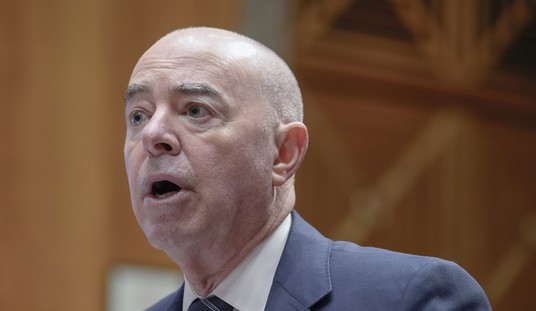In what feels (at least to me) like the greatest anti-climax to a mystery since Geraldo Rivera found bupkis in Al Capone’s vault, the Washington Post has confirmed the identity of the infamous Deep Throat of Watergate fame:
The Washington Post today confirmed that W. Mark Felt, a former number-two official at the FBI, was “Deep Throat,” the secretive source who provided information that helped unravel the Watergate scandal in the early 1970s and contributed to the resignation of president Richard M. Nixon.
The confirmation came from Bob Woodward and Carl Bernstein, the two Washington Post reporters who broke the Watergate story, and their former top editor, Benjamin C. Bradlee. The three spoke after Felt’s family and Vanity Fair magazine identified the 91-year-old Felt, now a retiree in California, as the long-anonymous source who provided crucial guidance for some of the newspaper’s groundbreaking Watergate stories.
* * *
In a statement today, Woodward and Bernstein said, “W. Mark Felt was ‘Deep Throat’ and helped us immeasurably in our Watergate coverage. However, as the record shows, many other sources and officials assisted us and other reporters for the hundreds of stories that were written in The Washington Post about Watergate.”
The accompanying article has people describing Felt as a “hero”, while some of the commenters here are more inclined to see him as a traitor. I don’t think either applies. Felt worked with the Post for his own personal motivations of revenge and frustration at being passed over. If Nixon had made him Director of the FBI, he never would have lefted a finger for Woodward or Bernstein.
On the other hand, having decided to pursue wrongdoing by the White House, Felt’s complicity in similar activity against terrorist groups like the Weather Underground would have made it difficult, if not impossible, for him to have any chance of success. Becoming a whistleblower probably made it possible for the truth to get out, even if that did provide a measure of personal satisfaction (short-lived as it was) for Felt.
Like the scandal he helped expose, Felt and his role were much more complicated than a simple hero-or-traitor binary choice allows.
I agree–and in a post amusingly titled “Deep Epstein“, Power Line reprints a very smart piece from 1974 by Edward Jay Epstein on Watergate, and the competing roles of the media and government organizations jockeying for power:
Perhaps the most perplexing mystery in Bernstein and Woodward’s book is why they fail to understand the role of the institutions and investigators who were supplying them and other reporters with leaks. This blind spot, endemic to journalists, proceeds from an unwillingness to see the complexity of bureaucratic in-fighting and of politics within the government itself. If the government is considered monolithic, journalists can report its activities, in simply comprehended and coherent terms, as an adversary out of touch with popular sentiments. On the other hand, if governmental activity is viewed as the product of diverse and competing agencies, all with different bases of power and interests, journalism becomes a much more difficult affair.
In any event, the fact remains that it was not the press, which exposed Watergate; it was agencies of government itself. So long as journalists maintain their blind spot toward the inner conflicts and workings of the institution, of government, they will no doubt continue to speak of Watergate in terms of the David and Goliath myth, with Bernstein and Woodward as David and the government as Goliath.
You could make the case that unlike Richard Nixon (who as Chris Matthews once said, spent the rest of his life rebuilding his image and reworking it into that of an elder statesman in anticipation of his death, with arguable degrees of success), and the Republicans (who spent four years in the wilderness only to reemerge triumphantly with the election of Ronald Reagan in 1980), the press has never recovered from Watergate. The same impulses that drove Woodward and Bernstein and the Post to bring down the hated Nixon and cause America to abandon Vietnam have been amped-up exponentially in their war against President Bush and America’s war on terror–but with disastrous results for the media: circulation has fallen dramatically in recent years, the Blogosphere is running rings around them, and any shred of the appearance of neutrality or objectivity ended by the time the presidential election was over in November.
That’s obviously not the lesson that the media takes from Watergate of course, but it’s worth noting that critics such as Epstein were trying to point out the media’s hubris even as early as 30 years ago.
Update: Of course, Deep Throat was apparently only chosen as a nom de snitch by Woodward and Berstein’s book editor after careful consideration. Jeff Goldstein has somehow gotten a list of the nine rejected names.
Another Update: Welcome AOL News Blog Zone readers! Put your feet up, stay awhile and look around, there’s lots of material on the site that may be of interest.










Join the conversation as a VIP Member